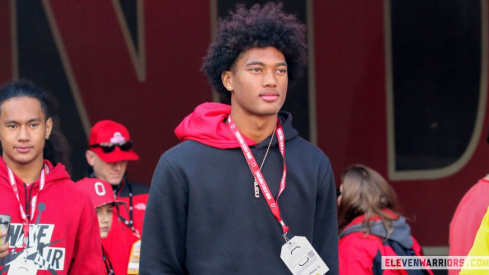Early this morning, WBNS ran a story that suggested Ohio State's Board of Trustees violated Ohio's Open Meetings Act by conducting a closed-door meeting:
More than half of Ohio State University's trustees met privately for much of the day yesterday with other university officials, and board Chairman Leslie H. Wexner said NCAA compliance issues were discussed at some point.
Such discussions involving trustees in a closed meeting appear to be a violation of Ohio's public-meetings laws.
Ohio law is not ambiguous at all about what constitutes a public meeting:
The Open Meetings Act requires public bodies in Ohio to conduct all public business in open meetings that the public may attend and observe. This means that if a public body is meeting to discuss and vote on or otherwise decide public business, the meeting must be open to the public.
What WBNS jumped on was that Les Wexner mentioned that NCAA compliance issues were discussed.
Ohio State's ongoing NCAA troubles are no mystery to anyone, let alone its Board of Trustees. Conducting any meeting without even mentioning the story of the day would be more than ignoring the elephant in the room. This elephant has explosive diarrhea. The NCAA came up. It had to.
But if that wasn't the purpose of the meeting, and if no decisions were made specific to what could be interpreted as the public's business, then the Open Meetings Act does not apply. This is exactly what OSU President Gordon Gee said in clarifying what Wexner had communicated:
"(OSU AD Gene Smith) was talking about some of the issues that we deal with as part of the institution. We'll call in other people over the next period of time...We're talking about issues that affect the university in terms of its strategy, (and) that is not part of the board discussion. This is part of a strategy discussion."
Which means there's no story, because there was no Open Meetings Act violation. However, journalists are on heightened alert and in full feeding-frenzy mode regarding anything Ohio State, so WBNS decided that it couldn't be satisfied with Gee's explanation:
Marion Little, a Columbus lawyer who specializes in public-access and records issues, said strategy discussions are not an exemption under state law.
"It looks like a public meeting squarely within the meaning of the Open Meetings Act," said Little, who represents The Dispatch, WBNS-10TV and other clients in public-access issues.
"It's disappointing that the university excluded the public from this, particularly given the significant public interest in recent events at Ohio State."
Wow, WBNS went all the way down the hall to get its own attorney to support its "illegal private meeting" angle. Her His evidence for this position? None.
Instead of relying on WBNS's story and its own attorney's interpretation, make your own decision based on what Ohio law says as well as your own common sense.
Earlier this morning I was in a meeting where we talked about the tornado that touched down last night in Churchill Downs. HOWEVER: The meeting was not about the weather.
We had a lot of other stuff going on, as I'm sure the OSU BOT did when they got together last night in private - legitimately - to discuss university strategy.
It will be another disappointment for the local media in Columbus when MeetingGate joins CarGate on the scrap heap of manufactured scandal created solely to ride the publicity wave created by Ohio State's legitimate misgivings.
However, WBNS shouldn't be too disappointed. They get to work in Ohio, a state that actually has an Open Meetings Act. The Boards of Trustees for both of the two SEC schools in Alabama aren't required to operate as publicly as Ohio State's does. "MeetingGate" is a legally-sanctioned impossibility there.

